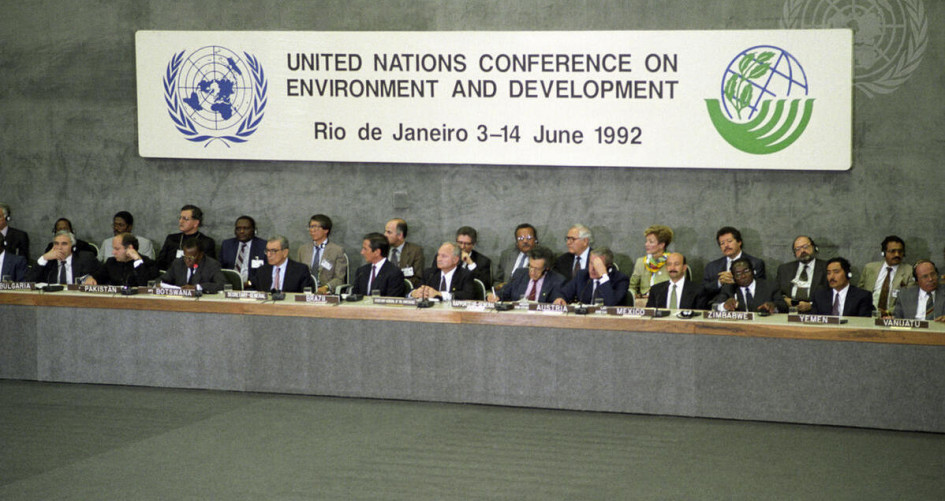New! The Rio Conventions Joint Capacity-building Programme, initiated by the secretariats of the three Rio Conventions (UNFCCC, CBD, and UNCCD), aims to strengthen individual, institutional, and systemic capacities to enhance synergies between climate action, biodiversity conservation and sustainable land management. It promotes cross-sector collaboration, integrated planning, policy development and resource mobilization, and the inclusion of indigenous and local knowledge, while fostering coordination and coherence in achieving the three Rio Conventions’ objectives and the Sustainable Development Goals (SDGs).
Climate change, desertification and biodiversity loss are heavily interlinked and pose existential challenges to humanity. Governments came together to discuss and address such existential challenges at the 1992 Earth Summit in Rio de Janeiro.
It was at this Summit where the United Nations Framework Convention on Climate Change (UNFCCC, also known as UN Climate Change) and the Convention on Biological Diversity (CBD, also known as UN Biodiversity) were opened for signature, while the negotiation of the United Nations Convention to Combat Desertification (UNCCD) was called for in the Summit outcome - Agenda 21. This is why these three sister conventions later collectively became known as "the Rio Conventions".
The three Rio Conventions are the result of concerns over similar environmental and development issues and have sustainable development at their hearts.
The Rio Conventions work closely together, with the overlaps in their work becoming ever stronger as the challenges related to climate change, desertification and biodiversity loss grow and cross-cutting solutions are developed.

